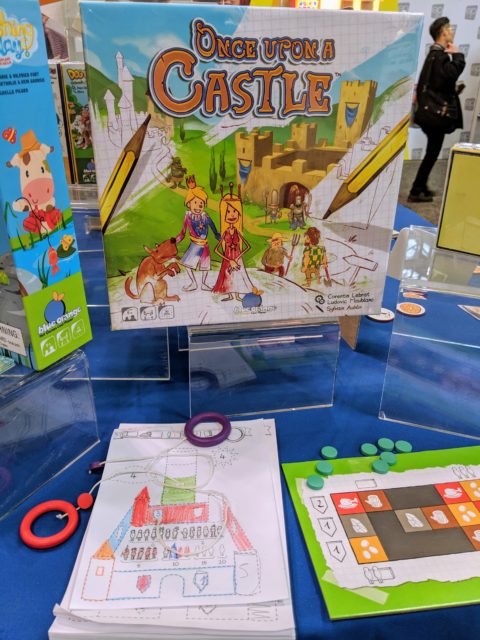Toy Fair is a trade show with a forward-looking vision: Retail buyers and toy industry members scramble around New York’s expansive Jacob Javitz convention center setting plans for the holiday shopping season. For the hobby board game industry, with its continued push onto mass market retail shelves, it’s an opportune time to check in and see what the future holds.
Takeaway #1: The spread of board games has reached a plateau
This does not mean that the board game audience has stagnated. It could very well continue to grow for the foreseeable future. Rather, board games have maximized their reach on store shelves, and the path to market is now well-established.
Looking back 10 years, the Games & Puzzles aisles of Toy Fair were stuffed with upstart publishers riding the waves of a nascent board game boom. Over time, some publishers (Asmodee, IELLO, etc) graduated to the premiere exhibits level, home to companies with firmer footing in the toy industry, but those graduations crested, and the arrangement of gaming booths at Toy Fair had been static for a few years.
This year, however, the game industry presence at Toy Fair was noticeably reduced. Publishers hoping to break into mass market are already working those avenues through sales agents, not hoping for a lucky drive-by visit from a buyer. Mom-and-pop specialty toy stores are also more familiar with modern board games, meaning they’re already working through distributors, not looking to order a case of games from the show floor at Toy Fair.

Much of the activity at game distributor booths pivoted away from pitching hobby board gaming, and instead placed the focus on themselves as a one-stop-shop for toy store distribution needs
This can all be seen as a symptom of the board game industry’s success. It’s hard to name a retailer that doesn’t stock board games these days, but it will take further expansion of the audience for game shelves to expand further. Until that time, it’s less relevant to make a splash at a trade show, and more prudent to work the existing channels.
Takeaway #2: Board games have re-established themselves in pop culture
Board games have always been included in the merchandising plans for major pop culture phenomenons, but for the past two decades, those plans were likely to stop at licensed versions of Operation and Life. Now, modern board games are seen as a viable merchandising option when studios are aiming to launch a new franchise IP.
As is the nature of dealing with licensors and an industry-only trade show, many of the game with pop-culture tie-ins were shown under embargo. However, the current USAopoly lineup is a clear example of where things are headed. Licensed strategy games are nothing new, but they have evolved from from simple theming to become actual tie-ins to specific movie releases, as could be seen with last year’s Thanos Rising (marketed specifically as an Avengers: Infinity War game). This year, Captain Marvel is sustaining that trend with its own custom edition of Bang!
We’re a long way from the heady days of the late 80’s where every conceivable IP was tagged for a video game spin-off (remember Oliver Stone’s Platoon? Yeah, it had its own NES cartridge) but some sensible progress has certainly been made. Funko’s acquisition of game designer powerhouse Forrest Pruzan was also announced at Toy Fair, a move that opens up the doors to many future licensed game possibilities.

Takeaway #3: Roll and write games are going big
The wider gaming industry has recognized that roll and write games are not simply a passing fad, but a proven design element to be incorporated in future games. Much of the category’s recent success could be attributed to the low cost and portable nature of roll and write games, but publishers are now looking to cash in on the hype with the big-box treatment. Saint Malo, you were before your time.
Again, some titles were shown under embargo, but roll and writes getting the Days of Wonder treatment in Corinth should speak volumes. Blue Orange Games was showing off Once Upon a Castle, and while Gamewright’s Sushi Roll isn’t quite roll and write, it’s worth mentioning that the dice version of Sushi Go is a big-box product, not the pocket-sized version as with most dice game spin-offs.
Comments
No comments yet! Be the first!